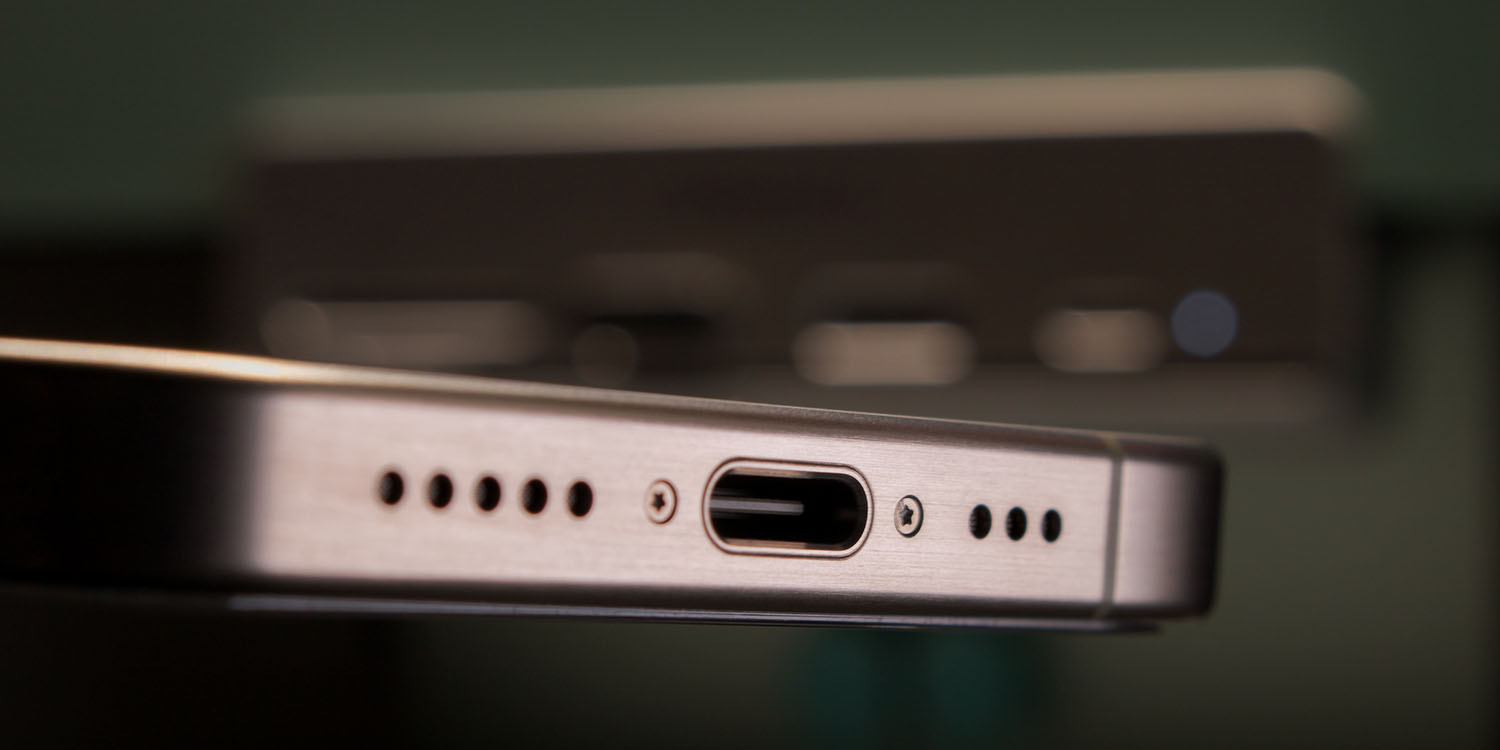
India is planning to copy the European Union’s USB-C charging port law, requiring all smartphones to adopt the standard, which poses three big problems for Apple – and not just in India.
A new report today says that Apple is lobbying either for an exemption for older models still manufactured in the country, or delayed enforcement of the proposed legislation …
USB-C charging port law
The original iPhone used what now seems like a hilariously clunky a 30-pin connector, replicated from the iPod.
With the launch of the iPhone 5 in 2012, however, Apple replaced this with a minimalist Lightning port. That port remained in use right up to the iPhone 14 line-up.
While Apple bet big on USB-C for the Mac and iPad, and would likely have made the switch for iPhone at some point, its hand was forced by an EU law. To reduce e-waste, and allow consumers to use the same chargers for multiple devices, the European Union required all smartphone manufacturers to use a USB-C port for charging.
India now plans to replicate this law, for the same reason.
Apple’s three problems
The law as currently drafted would apply to any devices manufactured after it comes into effect. This would effectively block Apple from manufacturing and selling older iPhones with a Lightning port – which would pose three major problems for the company.
First, with many Apple customers in India unable to afford the latest models, the Cupertino company relies heavily on the sale of older iPhones, which are still made in the country.
Second, the iPhone maker has manufacturing volume targets it must hit in order to take advantage of tax incentives offered by the country. India relies on a carrot-and-stick approach to encouraging local manufacturing of smartphones, known as production-linked incentives (PLI). The scheme offers tax breaks if you hit targets, and punitive import tariffs on devices and components if you don’t.
If Apple can no longer make older iPhones in India, and cannot hit targets as a result, it faces much more expensive production costs for the phones it can still make.
Third, India is Apple’s second-biggest iPhone manufacturing hub, after China. Being able to make a range of iPhones there – both old and new – is key to reducing the company’s dependence on China. The new law could prove a major setback to this progress.
Apple is lobbying for exemptions or delays
Reuters reports that Apple is responding by lobbying for an exemption for older models, or delayed enforcement of the law.
Apple has told India its local production targets will be hit if New Delhi follows the European Union and requires existing iPhones to have universal charging ports, a government document shows as the U.S. tech giant lobbies for an exemption or delay […]
While all manufacturers including Samsung have agreed to India’s plan, Apple is pushing back […]
In a closed-door Nov. 28 meeting chaired by India’s IT ministry, Apple asked officials to exempt existing iPhone models from the rules, warning it will otherwise struggle to meet production targets set under India’s production-linked incentive (PLI) scheme, according to the meeting minutes seen by Reuters.
9to5Mac’s Take
Top comment by Kevin Neal
Wouldn't the first issue be partly solved when the SE4 comes out anyway, provided it remains relatively low cost
In theory, this one ought to be simple to solve. Both Apple and India have a shared interest in manufacturing as many iPhones as possible in the country, so an exemption for continued production of older designs would ensure both parties get what they need.
However, this is India. The government has in the past taken a rigid and impatient attitude to compliance with its rules, which is why it took Apple a great many years before it was able to meet the requirements to open Apple Stores in the country – even though that too was clearly in the interest of both parties, by helping generate economic growth.
I’d hope this one would be quickly resolved – but I’m not holding my breath for a fast decision.
Photo: Samuel Angor/Unsplash
FTC: We use income earning auto affiliate links. More.




Comments